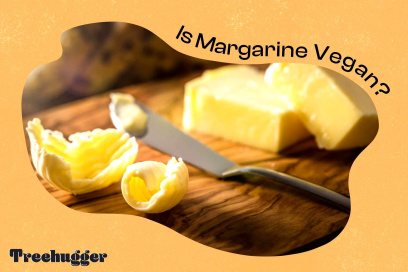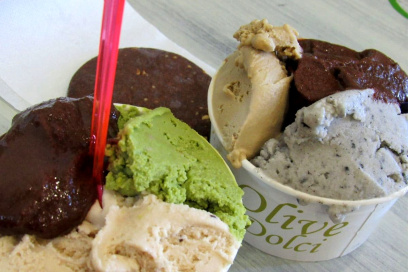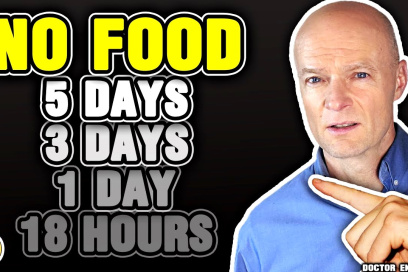With veganism's growing popularity, more and more people are asking: What does a vegan eat? While some may find the diet restrictive and unappealing, veganism offers so much more than "lettuce and carrots".
Veganism emphasizes plant-based foods like fruits, vegetables, whole grains, legumes, nuts and seeds. With creative meal planning, vegans can enjoy a diverse range of dishes that are packed with essential nutrients and delicious flavor combinations.
Plant-based diets have become an increasingly popular topic among health and wellness enthusiasts. Studies have linked them to reduced inflammation, improved heart health, reduced risk of chronic diseases like cancer and even weight maintenance - making veganism an attractive option that offers many potential advantages for individuals. Therefore, adopting a vegan diet can offer significant health advantages.
Though being vegan offers numerous advantages for both you and the environment, it can be intimidating to know where to begin. That is why this guide exists - to answer "what does a vegan eat?" and offer guidance for those considering making the switch to a plant-based lifestyle.
In this article, we'll take a closer look at what a vegan diet entails - from plant-based options and non-dairy alternatives to delicious meatless recipes. Additionally, we'll examine the nutrition behind a vegan lifestyle and offer tips for maintaining an balanced meal plan. So let's discover what vegans eat!
I. Plant-Based Diet
A plant-based diet consists of fruits, vegetables, whole grains, legumes, nuts and seeds that are all packed with essential nutrients like vitamins, minerals and fiber that promote optimal health. Many people who follow a plant-based diet report feeling more energised, healthier and satisfied after each meal.
One of the most important rules when following a plant-based diet is to incorporate various foods to meet all your nutritional needs. Eating various fruits and vegetables from different sources helps ensure you are getting enough essential vitamins and minerals.
Consuming whole grains daily is essential for maintaining energy levels throughout the day. Examples of whole grains that can help you feel full and satisfied for longer periods of time include quinoa, brown rice, and whole wheat bread.
Legumes such as lentils, chickpeas and black beans are packed with both fiber and plant-based protein. Not only are these foods essential for maintaining lean muscle mass but they can also provide you with sustained energy for hours on end.
Nuts and seeds are packed with healthy fats and essential nutrients. Snacking on them throughout the day is a tasty and convenient way to get all of the nutrition you need on a plant-based diet. Chia and hemp seeds in particular are beneficial, as they contain plant-based omega 3 fatty acids - essential for brain and heart health.
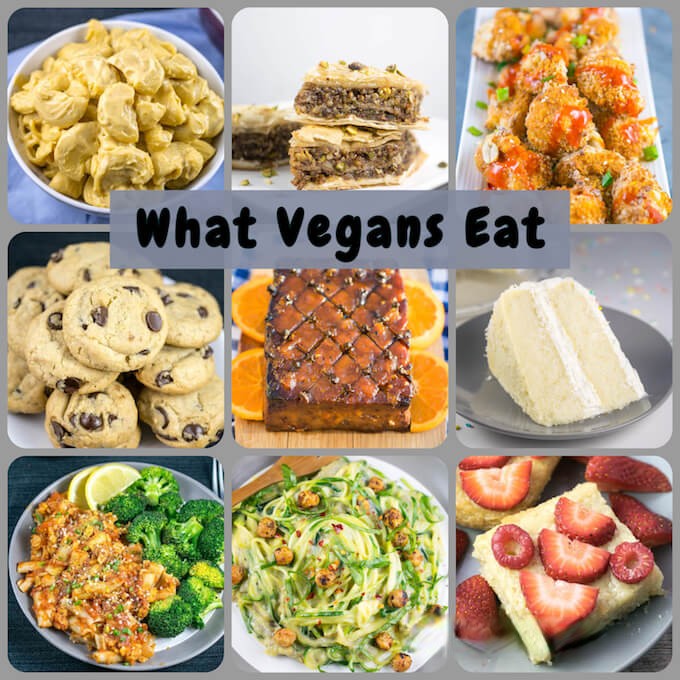
Many people worry that when following a plant-based diet, they won't get enough protein. But there are numerous plant-based sources of plant-based proteins to help you keep your muscle mass strong. Soy products like tofu, tempeh and edamame are all packed with protein as well as other essential nutrients like iron and calcium. Nuts, seeds and legumes also offer excellent sources of this vital plant protein.
In conclusion, a plant-based diet is an incredibly nourishing and satisfying way to eat. By including various fruits, vegetables, whole grains, legumes, nuts, and seeds into your daily meals, you can ensure that you're getting all of the essential nutrients your body needs to thrive. Furthermore, opting for such a diet may reduce your risk for chronic illnesses like heart disease, stroke, or type 2 diabetes while simultaneously helping protect the planet by reducing your carbon footprint.
II. Meatless Recipes
Adopting a vegan diet doesn't have to mean sacrificing flavor or variety. There are plenty of delicious meatless recipes out there that are easy to make and will tantalize your taste buds. Here are some examples of vegan dishes you're sure to enjoy:
- Vegan Lasagna - For vegans, this classic comfort food is the ideal option. Simply swap out the meat for vegetables like spinach, mushroom and zucchini and use dairy-free cheese in place of traditional cheese for an incredibly delicious and satisfying meal.
- Fill your plate with protein-packed vegan stews - There are countless delicious vegan stew recipes out there that are packed full of essential nutrients and proteins, like lentils, split peas and chickpeas. Plus you'll need vegetables like sweet potatoes, carrots and kale too for an even healthier dish!
- Vegan Burgers - By replacing the meat patty with a plant-based alternative like quinoa or black bean patties, and using non-dairy cheese, you can still enjoy delicious burgers without any animal products.
- Vegan Soups - Indulging in a bowl of nutritious soup during the winter months is an ideal way to get essential vitamins and minerals. Chickpea, lentil, or black bean soups all make delicious vegan alternatives.
- Quinoa Bowls - Enjoy these nutritious bowls as an easy and delicious way to incorporate various veggies, proteins, and whole grains into one meal. The combinations are virtually limitless!
Here is just a sampling of the many delicious meatless recipes available to enjoy. A quick internet search will yield many delectable vegan recipes for you to explore.
Switching to plant-based meals has never been simpler, as there are so many resources available for assistance. Some great places to find new vegan recipes include online recipe blogs, social media platforms like Pinterest and Instagram, as well as vegan cookbooks.
Another great tip is to adapt traditional recipes into vegan-friendly ones. By making simple substitutions like using non-dairy cheese, replacing eggs for flaxmeal, or substituting vegetable broth instead of chicken broth, you can easily turn your favorite meals into vegan-friendly versions.
In conclusion, adopting a vegan diet doesn't have to mean giving up delicious and satisfying meals. There are so many delicious vegan recipes out there, from hearty soups to veggie-packed pasta dishes. With some creativity and some research, you can incorporate some amazing vegan dishes into your daily routine - not only are these meals delicious but they are also more environmentally friendly, healthier, and ethical choices.
III. Non-Dairy Alternatives
When looking for non-dairy options, there are a few things to consider:
Veganism requires abstaining from all animal products, including dairy. While dairy items such as milk, cheese and yogurt provide plenty of calcium and protein for vegans to consume, they are not the only sources available to them. With the growing popularity of veganism comes an increased availability of non-dairy alternatives that satisfy your nutrient needs.
Plant-based milk alternatives like almond milk, soy milk and oat milk have been around for some time and can be found in most supermarkets. These alternatives often come fortified with essential vitamins and minerals found in dairy milk such as calcium and vitamin D; plus they have less saturated fat and cholesterol as well as being lower in calories than their dairy counterparts.
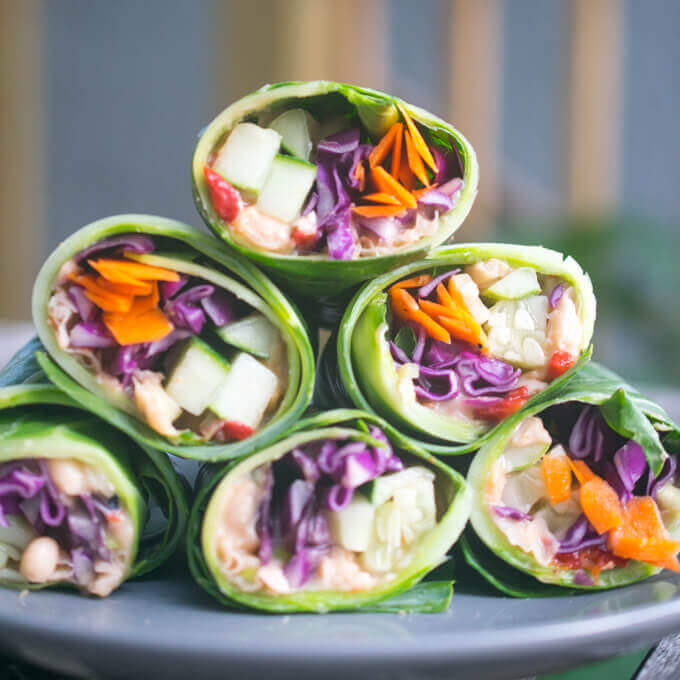
Non-dairy ice cream has become a growing trend within the vegan community, and there are now numerous lactose-free brands producing delicious treats from nut or plant milks.
Vegan cheese and yogurt are increasingly becoming a go-to for those who miss the taste of dairy. Vegan cheeses made from cashew, almond or soy are available to enjoy on pizza or sandwiches without the guilt. Furthermore, many vegan yogurts made with coconut, almond or soy milk are just as creamy and delicious as their dairy counterparts.
For those who enjoy butter, there are vegan-friendly alternatives to margarine that use plant-based ingredients like nuts or vegetable oil. These substitutes can easily be used in recipes calling for butter and provide the same buttery taste.
Adopting non-dairy alternatives as part of a vegan diet can offer numerous health advantages while also decreasing animal exploitation. Many of these vegan meals are lower in calories, have lower fat content and help to lower cholesterol levels in the body.
Adopting a vegan diet has many environmental advantages, and one of the greatest is its potential impact on climate change. Dairy products have an especially large carbon footprint, contributing significantly to greenhouse gas emissions from production. By prohibiting animal products consumption, vegan diets help minimize this harm both to animals' lives and the environment as well.
Switching from dairy to non-dairy alternatives may seem daunting at first, but there are plenty of creative vegan dishes that are both nutritious and delicious. By carefully selecting products with minimal added sugar or fat content, vegans still get enough nutrients - especially those found in traditional dairy products - without sacrificing taste or nutrition. With more availability and popularity of non-dairy options than ever before, transitioning to a vegan lifestyle has never been simpler.
IV. Nutrition for Vegans
Many people hold misconceptions about veganism, believing they cannot get all of their essential nutrients from this lifestyle. But with careful meal planning, a vegan diet not only provides all necessary nutrients but may even surpass what would be provided by non-vegan eating habits.
Here are some essential nutrients vegans should focus on to ensure they meet their daily requirements:
- Protein - Animal products are a well-known source of protein, but vegans can get all their required amounts from plant-based sources such as lentils, chickpeas, tofu and various nuts and seeds.
- Calcium - Calcium is essential for the formation and maintenance of strong bones and teeth, even vegans can get plenty of it from plant-based sources like bok choy, broccoli, and leafy greens. Even without dairy products in their diets, vegans can still get plenty of this important mineral from plant-based sources such as bok choy, broccoli, and leafy greens.
- Iron - Iron is essential for healthy blood and oxygen transport throughout the body, making meat an excellent source of this mineral. Vegans can still get their iron needs met through legumes like lentils or chickpeas as well as leafy greens like spinach or kale.
- Vitamin B-12 - This essential nutrient is often lacking in vegan diets as it's not commonly found in plant-based food sources. Vegans should consider taking a supplement or consuming fortified items like breakfast cereals or vegan-friendly milks to make up for this deficiency.
- Omega 3s - Vegans can obtain essential Omega-3 fatty acids through seeds such as chia, flax and hemp seeds. However, for maximum convenience you might find it more convenient to take algae-based supplements for adequate intake of these important fatty acids.
One way to ensure adequate nutrition on a vegan diet is to incorporate various plant-based foods into meals and snacks. A balanced and varied diet with plenty of fruits, vegetables, whole grains, legumes, nuts and seeds will provide your body with all essential nutrients it needs for optimal health.
Finally, it is imperative to ensure a vegan diet is balanced and nutritionally complete. Eating from plant-based sources provides all essential vitamins and minerals. By following some simple guidelines, individuals can successfully transition onto a vegan diet while reaping its many health benefits.
Conclusion
In conclusion, we have discovered that a vegan diet includes many plant-based foods like fruits, vegetables, whole grains, legumes, nuts and seeds. It contains essential vitamins, minerals and nutrients which support optimal health while decreasing the risk of chronic illnesses. By choosing meatless recipes and non-dairy alternatives for vegan meals, meals can still be delicious and satisfying without animal products.
By including a balanced range of nutrients in their vegan diet, individuals can easily obtain all necessary vitamins and minerals for optimal health. Transitioning to a plant-based lifestyle may seem daunting at first, but with so many resources and supportive communities available, it's achievable.
Veganism not only benefits human health, but it is one of the most environmentally conscious and compassionate lifestyle choices available. Not only does this lifestyle choice reduce animal exploitation and cruelty, but it also benefits our planet by aiding in digestion.
Overall, veganism offers individuals with a nutritious and healthful way of eating while also benefiting our planet. It's worth giving it a try and discovering all the wonderful things vegans eat!


